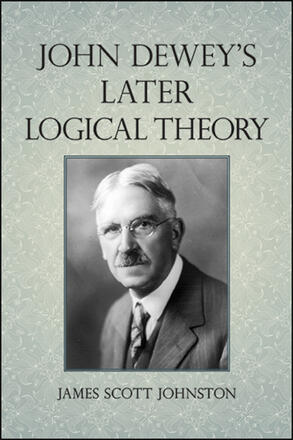
John Dewey's Later Logical Theory
Alternative formats available from:
A study of the development of Dewey's logic from 1916-1937 leading up to his final 1938 book on the subject.
Description
By 1916, Dewey had written two volumes on logical theory. Yet, in light of what he would write in his 1938 Logic: The Theory of Inquiry, much remained to be done. Dewey did not yet have an adequate account of experience suitable to explain how our immediate experiencing becomes the material for logical sequences, series, and causal relations. Nor did he have a refined account of judging, propositions, and conceptions. Above all, his theory of continuity—central to all of his logical endeavors—was rudimentary. The years 1916–1937 saw Dewey remedy these deficiencies. We see in his published and unpublished articles, books, lecture notes and correspondence, the pursuit of a line of thinking that would lead to his magnum opus. John Dewey's Later Logical Theory follows Dewey through his path from Essays in Experimental Logic to the publication of Logic: The Theory of Inquiry, and complements James Scott Johnston's earlier volume, John Dewey's Earlier Logical Theory.
James Scott Johnston is Jointly Appointed Associate Professor of Education and Philosophy at Memorial University of Newfoundland, Canada. He is the author of several books, including John Dewey's Earlier Logical Theory and Deweyan Inquiry: From Education Theory to Practice, both also published by SUNY Press.
Reviews
"Johnston's well-written work will benefit scholars and advanced students alike … Highly recommended. " — CHOICE
"Excellent work. Johnston thoroughly surveys a broad range of issues that have to be addressed in order to understand and assess Dewey's logical theory. " — Thomas Burke, University of South Carolina